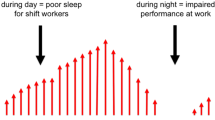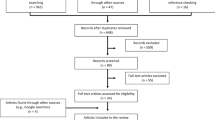Abstract
Work loss is a potential adverse consequence of cancer. There is limited research on patterns and correlates of paid work after diagnosis of breast cancer, especially among ethnic minorities. Women with non-metastatic breast cancer diagnosed from June 2005 to May 2006 who reported to the Los Angeles County SEER registry were identified and asked to complete the survey after initial treatment (median time from diagnosis = 8.9 months). Latina and African American women were over-sampled. Analyses were restricted to women working at the time of diagnosis, <65 years of age, and who had complete covariate information (N = 589). The outcome of the study was missed paid work (≤1 month, >1 month, stopped all together). Approximately 44, 24, and 32% of women missed ≤1 month, >1 month, or stopped working, respectively. African Americans and Latinas were more likely to stop working when compared with Whites [OR for stop working vs. missed ≤1 month: 3.0, 3.4, (P < 0.001), respectively]. Women receiving mastectomy and those receiving chemotherapy were also more likely to stop working, independent of sociodemographic and treatment factors [ORs for stopped working vs. missed ≤1 month: 4.2, P < 0.001; 7.9, P < 0.001, respectively]. Not having a flexible work schedule available through work was detrimental to working [ORs for stopped working 18.9, P < 0.001 after adjusting for sociodemographic and treatment factors]. Many women stop working altogether after a diagnosis of breast cancer, particularly if they are racial/ethnic minorities, receive chemotherapy, or those who are employed in an unsupportive work settings. Health care providers need to be aware of these adverse consequences of breast cancer diagnosis and initial treatment.


Similar content being viewed by others
References
Bowen DJ, Alfano CM, McGregor BA, Kuniyuki A, Bernstein L, Meeske K, Baumgartner KB, Fetherolf J, Reeve BB, Smith AW et al (2007) Possible socioeconomic and ethnic disparities in quality of life in a cohort of breast cancer survivors. Breast Cancer Res Treat 106(1):85–95. doi:10.1007/s10549-006-9479-2
Maunsell E, Brisson C, Dubois L, Lauzier S, Fraser A (1999) Work problems after breast cancer: an exploratory qualitative study. Psychooncology 8(6):467–473. doi:10.1002/(SICI)1099-1611(199911/12)8:6<467::AID-PON400>3.0.CO;2-P
Kennedy F, Haslam C, Munir F, Pryce J (2007) Returning to work following cancer: a qualitative exploratory study into the experience of returning to work following cancer. Eur J Cancer Care (Engl) 16(1):17–25. doi:10.1111/j.1365-2354.2007.00729.x
Bradley CJ, Neumark D, Luo Z, Schenk M (2007) Employment and cancer: findings from a longitudinal study of breast and prostate cancer survivors. Cancer Invest 25(1):47–54. doi:10.1080/07357900601130664
Bouknight RR, Bradley CJ, Luo Z (2006) Correlates of return to work for breast cancer survivors. J Clin Oncol 24(3):345–353. doi:10.1200/JCO.2004.00.4929
Maunsell E, Drolet M, Brisson J, Brisson C, Masse B, Deschenes L (2004) Work situation after breast cancer: results from a population-based study. J Natl Cancer Inst 96(24):1813–1822
Spelten ER, Sprangers MA, Verbeek JH (2002) Factors reported to influence the return to work of cancer survivors: a literature review. Psychooncology 11(2):124–131. doi:10.1002/pon.585
Bradley CJ, Bednarek HL, Neumark D (2002) Breast cancer and women’s labor supply. Health Serv Res 37(5):1309–1328. doi:10.1111/1475-6773.01041
Bradley CJ, Oberst K, Schenk M (2006) Absenteeism from work: the experience of employed breast and prostate cancer patients in the months following diagnosis. Psychooncology 15(8):739–747. doi:10.1002/pon.1016
Drolet M, Maunsell E, Mondor M, Brisson C, Brisson J, Masse B, Deschenes L (2005) Work absence after breast cancer diagnosis: a population-based study. CMAJ 173(7):765–771. doi:10.1503/cmaj.050178
Sassi F, Luft HS, Guadagnoli E (2006) Reducing racial/ethnic disparities in female breast cancer: screening rates and stage at diagnosis. Am J Public Health 96(12):2165–2172. doi:10.2105/AJPH.2005.071761
Lantz PM, Mujahid M, Schwartz K, Janz NK, Fagerlin A, Salem B, Liu L, Deapen D, Katz SJ (2006) The influence of race, ethnicity, and individual socioeconomic factors on breast cancer stage at diagnosis. Am J Public Health 96(12):2173–2178. doi:10.2105/AJPH.2005.072132
Hershman D, McBride R, Jacobson JS, Lamerato L, Roberts K, Grann VR, Neugut AI (2005) Racial disparities in treatment and survival among women with early-stage breast cancer. J Clin Oncol 23(27):6639–6646. doi:10.1200/JCO.2005.12.633
Katz SJ, Lantz PM, Paredes Y, Janz NK, Fagerlin A, Liu L, Deapen D (2005) Breast cancer treatment experiences of Latinas in Los Angeles County. Am J Public Health 95(12):2225–2230. doi:10.2105/AJPH.2004.057950
Du W, Simon MS (2005) Racial disparities in treatment and survival of women with stage I–III breast cancer at a large academic medical center in metropolitan Detroit. Breast Cancer Res Treat 91(3):243–248. doi:10.1007/s10549-005-0324-9
Bradley CJ, Given CW, Roberts C (2002) Race, socioeconomic status, and breast cancer treatment and survival. J Natl Cancer Inst 94(7):490–496
Adderley-Kelly B, Williams-Stephens E (2003) The relationship between obesity and breast cancer. ABNF J 14(3):61–65
Ashing-Giwa KT, Padilla GV, Bohorquez DE, Tejero JS, Garcia M (2006) Understanding the breast cancer experience of Latina women. J Psychosoc Oncol 24(3):19–52. doi:10.1300/J077v24n03_02
Ashing-Giwa KT, Padilla G, Tejero J, Kraemer J, Wright K, Coscarelli A, Clayton S, Williams I, Hills D (2004) Understanding the breast cancer experience of women: a qualitative study of African American, Asian American, Latina and Caucasian cancer survivors. Psychooncology 13(6):408–428. doi:10.1002/pon.750
Short PF, Vargo MM (2006) Responding to employment concerns of cancer survivors. J Clin Oncol 24(32):5138–5141. doi:10.1200/JCO.2006.06.6316
Hoffman B (2005) Cancer survivors at work: a generation of progress. CA Cancer J Clin 55(5):271–280. doi:10.3322/canjclin.55.5.271
Word D, Perkins JR (2006) Building a Spanish surname list for the 1990s—a new approach to an old problem. US Census Bureau, Technical Working Paper No 13
Anema MG, Brown BE (1995) Increasing survey responses using the total design method. J Contin Educ Nurs 26:109–114
Marin G, Sabogal F, Marin BV, Otero-Sabogal R, Perez-Stable EJ (1987) Development of a short acculturation scale for Hispanics. Hisp J Behav Sci 9(2):183–205. doi:10.1177/07399863870092005
Benson JR, Weaver DL, Mittra I, Hayashi M (2003) The TNM staging system and breast cancer. Lancet Oncol 4(1):56–60. doi:10.1016/S1470-2045(03)00961-6
Spelten ER, Verbeek JH, Uitterhoeve AL, Ansink AC, van der Lelie J, de Reijke TM, Kammeijer M, de Haes JC, Sprangers MA (2003) Cancer, fatigue and the return of patients to work-a prospective cohort study. Eur J Cancer 39(11):1562–1567. doi:10.1016/S0959-8049(03)00364-2
Satariano WA, DeLorenze GN (1996) The likelihood of returning to work after breast cancer. Public Health Rep 111(3):236–241
Drolet M, Maunsell E, Brisson J, Brisson C, Masse B, Deschenes L (2005) Not working 3 years after breast cancer: predictors in a population-based study. J Clin Oncol 23(33):8305–8312. doi:10.1200/JCO.2005.09.500
Bushunow PW, Sun Y, Raubertas RF, Rosenthal S (1995) Adjuvant chemotherapy does not affect employment in patients with early-stage breast cancer. J Gen Intern Med 10(2):73–76. doi:10.1007/BF02600230
Acknowledgments
The study was supported by a grant from the National Cancer Institute (1R01CA109696) to the University of Michigan. Dr. Katz was supported by an Established Investigator Award in Cancer Prevention, Control, Behavioral and Population Sciences from the National Cancer Institute (K05 CA111340). The collection of cancer incidence data used in this study was supported by the California Department of Public Health as part of the statewide cancer reporting program mandated by California Health and Safety Code Sect. 103885; the National Cancer Institute’s Surveillance, Epidemiology and End Results Program under contract N01-PC-35139 awarded to the University of Southern California, contract N01-PC-54404 awarded to the Public Health Institute; and the Centers for Disease Control and Prevention’s National Program of Cancer Registries, under agreement 1U58DP00807-01 awarded to the Public Health Institute. The ideas and opinions expressed herein are those of the author(s) and endorsement by the State of California, Department of Public Health the National Cancer Institute, and the Centers for Disease Control and Prevention or their Contractors and Subcontractors is not intended nor should be inferred.
The authors thank the Robert Wood Johnson Foundation Health & Society Scholars program for its financial support.
Author information
Authors and Affiliations
Corresponding author
Rights and permissions
About this article
Cite this article
Mujahid, M.S., Janz, N.K., Hawley, S.T. et al. The impact of sociodemographic, treatment, and work support on missed work after breast cancer diagnosis. Breast Cancer Res Treat 119, 213–220 (2010). https://doi.org/10.1007/s10549-009-0389-y
Received:
Accepted:
Published:
Issue Date:
DOI: https://doi.org/10.1007/s10549-009-0389-y




